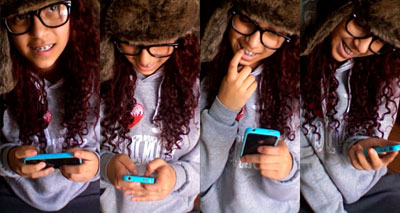All Nonfiction
- Bullying
- Books
- Academic
- Author Interviews
- Celebrity interviews
- College Articles
- College Essays
- Educator of the Year
- Heroes
- Interviews
- Memoir
- Personal Experience
- Sports
- Travel & Culture
All Opinions
- Bullying
- Current Events / Politics
- Discrimination
- Drugs / Alcohol / Smoking
- Entertainment / Celebrities
- Environment
- Love / Relationships
- Movies / Music / TV
- Pop Culture / Trends
- School / College
- Social Issues / Civics
- Spirituality / Religion
- Sports / Hobbies
All Hot Topics
- Bullying
- Community Service
- Environment
- Health
- Letters to the Editor
- Pride & Prejudice
- What Matters
- Back
Summer Guide
- Program Links
- Program Reviews
- Back
College Guide
- College Links
- College Reviews
- College Essays
- College Articles
- Back
Mother Tongue MAG
“Sometimes I wish I had never come here.”
My father doesn't realize that his words stick with me.
Backwards, not forwards
to the day he arrived in this country
somewhere in 1992.
Nothing in his hands but a medical degree,
a waiting, pregnant wife,
and his family's blessing.
The epitome of the American dream:
an immigrant building himself up in the land of opportunities.
Even if that land killed one of his daughters,
failed his wife's business,
and crumbled his family.
He said those words in a conversation
about how I still couldn't speak
Amarangya, the language of his people.
Not-so-secretly, I blame my older sister
who spoke Amarangya first,
but eagerly drank up English at school.
And I, always eager to follow her,
refused to speak Amarangya,
waiting at the door like a friendly puppy,
ready to hear what she had learned that day:
“Hi”
“My name is Leeya”
“L-E-E-Y-A”
“See Tom run”
“The cat is fat
and the rat has a hat”
I absorbed the words and disregarded my parents'
I was a first-generation American
God bless the USA.
But I guess I loved “my country” too much
Always jumping from phase to phase that this place had to offer
Princesses, then monkeys,
then musicals, then photography,
New York, to indie music,
to boys, and back.
I didn't know that because of my skin
I already had a predestined track
I didn't know that I was expected to
wear hoop earrings,
listen to hip-hop,
and love fried chicken.
So just as I had denied Ethiopia,
black America denied me.
I remember going to the hairdresser's
one day,
and an elderly black woman asking me,
“Oh you're not really black … are you?”
I was flabbergasted.
I vaguely nodded and moved on.
That started the awakening.
No one accepted me.
Even though I wasn't biracial,
I felt split between two cultures.
Be black, or be black?
I remember being little and saying,
“I'm not black, I'm brown!”
and I'd hold out my small arm
so no one could tell me otherwise.
Is it odd that I found myself raceless?
Clear as a glass pitcher,
waiting to be filled.
One day, in my grandparents' house on a hot day,
I asked if I could look through some old albums.
I flipped through pictures of my grandmother
before she got her gold teeth
that used to mesmerize me as a child.
Pictures of my father as a boy,
scrawny as he was,
with his eight other sisters and brother.
Before long, my eyes began to sting and
I swallowed back the rock in my throat
when I saw the picture of my great-aunt as a young woman,
stunning, yet docile,
wearing a shy smile,
like she had a secret that no one would ever know.
I guess I was crying because I would never know
why, even in her seventies,
she still hasn't married.
Was she ever in love?
Did she ever want to be?
I guess I was crying because,
with her barely passable English,
and in my terrible Amarangya,
I would never be able to ask.
And I think my father said what he said
because with every day that his accent faded,
he realized that I would never have one.

Similar Articles
JOIN THE DISCUSSION
This article has 3 comments.

9 articles 4 photos 569 comments
Favorite Quote:
( ͡~ ͜ʖ ͡°)